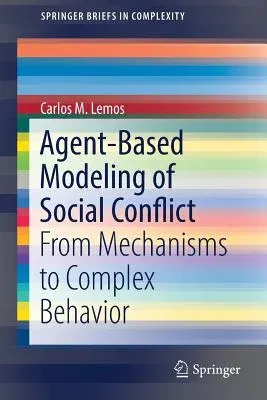This Brief revisits and extends Epstein's classical agent-based model of
civil violence by considering important mechanisms suggested by social
conflict theories. Among them are: relative deprivation as generator of
hardship, generalized vanishing of the risk perception ('massive fear
loss') when the uprisings surpass a certain threshold, endogenous
legitimacy feedback, and network influence effects represented by the
mechanism of dispositional contagion. The model is explored in a set of
computer experiments designed to provide insight on how mechanisms lead
to increased complexity of the solutions. The results of the simulations
are compared with statistical analyses of estimated size, duration and
recurrence of large demonstrations and riots for eight African countries
affected by the "Arab Spring," based on the Social Conflict Analysis
Database.
It is shown that the extensions to Epstein's model proposed herein lead
to increased "generative capacity" of the agent-based model (i.e. a
richer set of meaningful qualitative behaviors) as well the
identification of key mechanisms and associated parameters with tipping
points. The use of quantitative information (international indicators
and statistical analyses of conflict events) allows the assessment of
the plausibility of input parameter values and simulated results, and
thus a better understanding of the model's strengths and limitations.
The contributions of the present work for understanding how mechanisms
of large scale conflict lead to complexbehavior include a new form of
the estimated arrest probability, a simple representation of political
vs economic deprivation with a parameter which controls the
`sensitivity' to value, endogenous legitimacy feedback, and the effect
of network influences (due to small groups and "activists"). In
addition, the analysis of the Social Conflict Analysis Database provided
a quantitative description of the impact of the "Arab Spring" in several
countries focused on complexity issues such as peaceful vs violent,
spontaneous vs organized, and patterns of size, duration and recurrence
of conflict events in this recent and important large-scale conflict
process. This book will appeal to students and researchers working in
these computational social science subfields.

